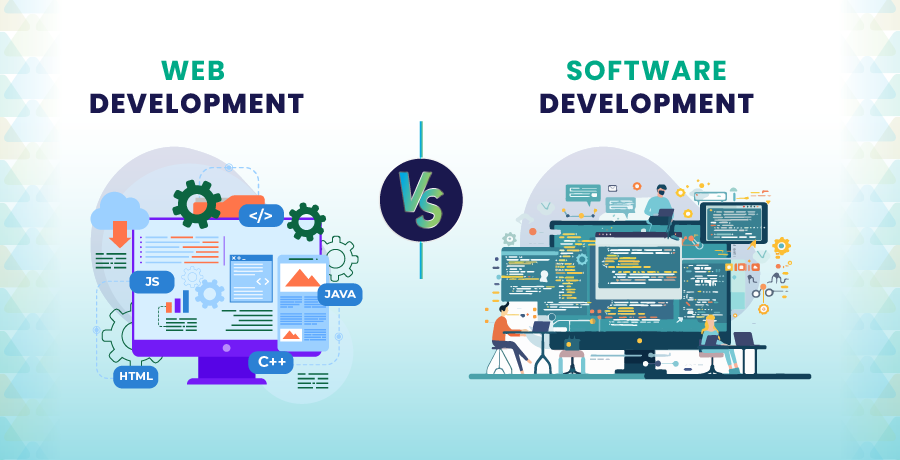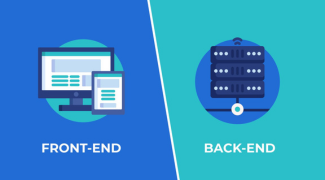Web Development vs Software Development: Which Path is Right for You?

Choosing between web development and software development depends on your interests, career goals, and the type of work you enjoy. Here’s a comparison to help you decide which path might be right for you:
Web Development
Overview:
Web development focuses on creating and maintaining websites and web applications. It involves front-end (client-side) and back-end (server-side) development, or both in the case of full-stack development.
Key Areas:
- Front-End Development: Designing the user interface and experience. Key technologies include HTML, CSS, JavaScript, and frameworks/libraries like React, Angular, or Vue.js.
- Back-End Development: Building the server-side logic and database management. Common languages include Python, Node.js, Ruby, PHP, and Java. Databases like SQL or NoSQL are used.
- Full-Stack Development: Combining both front-end and back-end skills. Full-stack developers are proficient in both areas and often use technologies like MERN (MongoDB, Express, React, Node.js) or MEAN (MongoDB, Express, Angular, Node.js).
Pros:
- High Demand: There’s a strong demand for web developers due to the ever-growing need for online presence and web applications.
- Rapid Development: Technologies and frameworks evolve quickly, offering opportunities to work on innovative projects.
- Freelance Opportunities: Many web developers work as freelancers or in small teams, offering flexibility and variety in projects.
Cons:
- Constant Learning: The fast-paced evolution of web technologies means continuous learning and adaptation.
- Browser Compatibility Issues: Ensuring your web application works across different browsers and devices can be challenging.
Ideal For:
- Those who enjoy working on user interfaces and creating engaging web experiences.
- Individuals who like seeing their work instantly deployed and accessible to users.
Software Development
Overview:
Software development involves creating software applications for various platforms, including desktop, mobile, and embedded systems. It often requires a deeper understanding of algorithms, data structures, and system architecture.
Key Areas:
- Desktop Applications: Developing software for operating systems like Windows, macOS, or Linux. Common languages include Java, C#, and C++.
- Mobile Applications: Creating apps for mobile devices using languages and frameworks like Swift (iOS), Kotlin (Android), or cross-platform tools like Flutter or React Native.
- Embedded Systems: Working with hardware and software to develop applications for embedded systems like IoT devices. Languages like C and C++ are common.
Pros:
- Diverse Applications: Software development can span various industries, including finance, healthcare, gaming, and more.
- Problem-Solving: Often involves complex problem-solving and algorithmic challenges, which can be intellectually rewarding.
- Potential for Innovation: Opportunities to work on cutting-edge technologies like AI, VR/AR, and high-performance computing.
Cons:
- Longer Development Cycles: Software projects may have longer development cycles and more extensive testing compared to web development.
- Complex Systems: Working on complex systems and understanding low-level programming can be challenging.
Ideal For:
- Those who enjoy working on complex systems, algorithms, and problem-solving.
- Individuals who are interested in working on a variety of platforms and technologies.
Deciding Factors
- Interest and Passion:
- Web Development: If you enjoy working on user-facing applications and rapid iteration.
- Software Development: If you’re more interested in building complex systems or working with various platforms.
- Career Goals:
- Web Development: Ideal for those looking to enter the tech field quickly with a focus on web technologies.
- Software Development: Suitable for those aiming for roles in software engineering, system design, or specialized fields.
- Learning Style:
- Web Development: Often involves a more visual and interactive learning process with immediate feedback.
- Software Development: May require a deeper dive into programming concepts and system-level understanding.
- Work Environment:
- Web Development: Often found in tech startups, marketing agencies, and small to mid-sized companies.
- Software Development: Common in larger tech companies, software firms, and industries requiring specialized software solutions.
Ultimately, both paths offer rewarding careers with strong job prospects. It’s a good idea to explore both areas through projects or internships to get a feel for what resonates with you.








